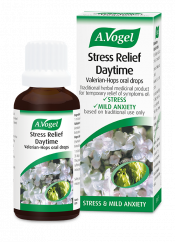Spending time outdoors to elevate mood
Spending time outdoors improves energy levels, sleep and focus. It is also really good for mood. To learn more, this blog will cover:
- How does being outdoors improve mood?
- How to increase the amount of time you spend outdoors.
Plus, watch my quick self-care video for information on a treatment for depression and low mood known as ecotherapy.
How does being outdoors improve mood?
There are plenty of ways in which being outdoors can improve mood. Here I talk through just a few reasons.
1. Boosts vitamin D exposure
Vitamin D has been found to be very important for mood and mental health, helping to reduce the severity of conditions like depression and Seasonal Affective Disorder (SAD).1 The body's main source of vitamin D is the sun so getting outdoors helps top up our stores of this very useful nutrient.
2. Nature is relaxing
Taking time out to appreciate the sounds, scenes and solitude provided by nature can be a very relaxing experience and may help to reduce levels of the stress hormone cortisol. Nature can also provide a positive distraction from whatever stressful thoughts are occupying your mind.
3. Outdoor space provides an opportunity to exercise
Exercise is super important for our mood. It releases endorphins, it gives us something to focus on and there is a sense of accomplishment at the end. There are so many ways to exercise outdoors and reap these benefits, including:
- Cycling
- Running
- Golf
- Sailing
- Fishing
- Walking
- Outdoor yoga.
4. It can be sociable
Social interaction is also really good for our mood. Research shows that those suffering from depressive symptoms, in particular, are set to benefit from building strong social relationships and gaining a sense of belonging.2
There are loads of opportunities to be social outdoors, from chatting to people on your afternoon walk to doing a spot of volunteering. Joining an outdoor club may also be an option – hillwalking and running are just some examples here.
5. Gives a confidence boost
Trying a new outdoor activity, whether it's an adventurous aerial assault course or something more sedate like planting flowers, can be a good confidence booster as you learn new skills.
How to increase the amount of time you spend out doors
Looking for new ways to get outdoors? Have a look at this list for inspiration!
- Go for a fast-paced 20-minute walk 5 times a week.
- Get out in the garden – pot a few herbs, grow your own tomatoes or simply dig up some of the weeds that have been left to take over... There are quite a few seeds that can be sown in the autumn to be ready for spring flowering.
- Pick fruit – blackberries are ripe and readily available in autumn. Take a Tupperware box and fill it up on your afternoon walk.
- Have outdoor meet-ups with friends and family – take a picnic on your walk or have a BBQ outside.
- Volunteer at a local community garden, urban farm or allotment.
My self-care tip: Try ecotherapy to improve mood
Check out this video for information on ecotherapy and how it could be of benefit to you.
- Shop local. Instead of heading to your supermarket all the time, take a stroll along your high street and use the local businesses set up there.
- Paint, draw or make collages outdoors.
- Suggest walking a friend or neighbour's dog if they are out and you are available.
- Take up photography and connect with the outdoors.
- Get outdoors and help the environment at the same time by picking up litter or by building a bug house in your back garden.









